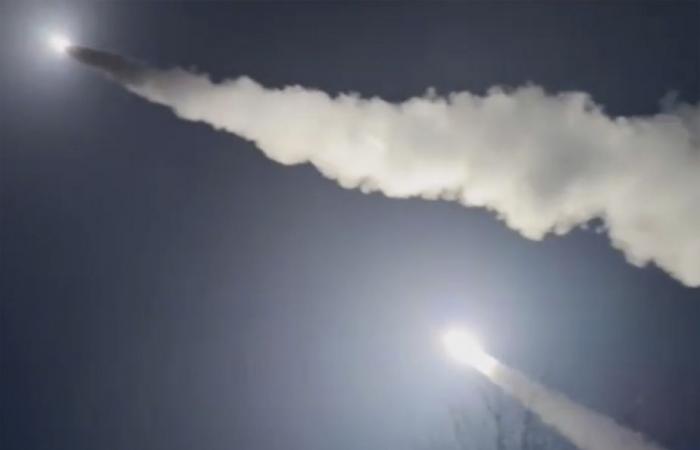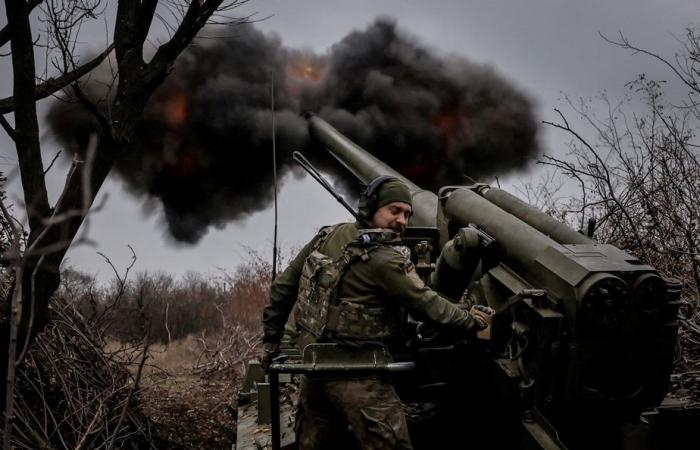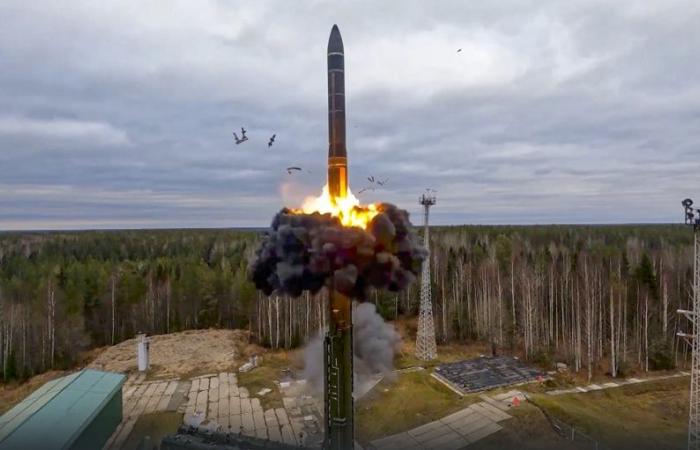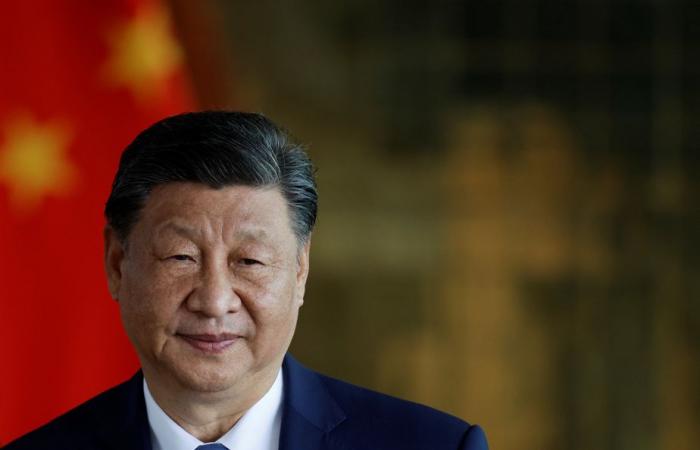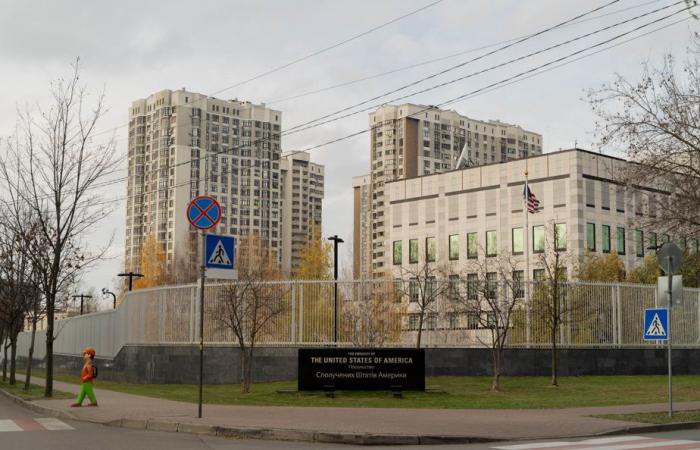(Kyiv) Ukraine used British long-range Storm Shadow missiles against Russian territory for the first time, after obtaining authorization from London, British media reported on Wednesday, the day after the similar launch of American ATACMS missiles.
Posted at 6:41 a.m.
Updated at 3:40 p.m.
Victoria LUKOVENKO
Agence France-Presse
Kyiv had long demanded authorization to use these weapons, but the West feared the reaction from Moscow, which presented this as a red line.
Several Storm Shadow missiles, which have a range of more than 250 km, were launched at at least one Russian military target, the Financial Times reports, citing three anonymous sources, including a Western official briefed on the strike.
The United Kingdom gave the green light to the use of these missiles against Russian territory in response to the deployment of North Korean troops to help the Russian army, according to the daily The Guardian.
Neither Kyiv nor London have yet confirmed this information.
On Tuesday, Ukraine used American ATACMS missiles for the first time, with a range of 300 km, against a military installation in the Russian region of Bryansk.
She called on Westerners not to fuel “the tension” maintained for several days by Moscow, which has once again resorted to its nuclear rhetoric in the face of the green light given by Washington to American missile strikes on Russian territory.
Several Western countries supplied long-range missiles to Ukraine, but did not authorize their use on Russian territory.
American President Joe Biden, who will hand over in January to a Donald Trump much less inclined to help Ukraine financially, has finally given the green light to their use in Russia, Washington announced on Sunday.
Mines
Russia has increased its warnings against Ukraine and the West in recent days, in response to the green light given by the United States to Kyiv to strike Russian soil with the long-range missiles delivered to it.
Joe Biden’s administration also announced on Wednesday its intention to supply Ukraine with antipersonnel mines, a type of weapon widely criticized for the number of civilian victims it causes, including long after the end of conflicts.
Ukrainian President Volodymyr Zelensky, however, assured that these mines were “very important” in stopping the advance of Moscow’s soldiers.
The Russian army continues to advance in the east and on Wednesday claimed the capture of a new town near the town of Kurakhové.
UKRAINIAN ARMED FORCES PHOTO, PROVIDED BY REUTERS
A soldier of the 24th mechanized brigade of the Armed Forces of Ukraine fires a 2s5 “Hyacinth-s” self-propelled howitzer towards Russian troops on a front line near the town of Chasiv Yar in the Donetsk region of Ukraine on 18 November 2024.
According to Washington, the mines supplied to Ukraine will be “non-persistent”, that is to say equipped with a self-destruction or self-deactivation device.
An anti-mine organization, the ICBL, winner of the Nobel Peace Prize in 1997, condemned a “disastrous decision by the United States” and called on Ukraine to refuse to use this type of weapon.
Kremlin spokesman Dmitry Peskov accused the United States of being “fully committed to prolonging the war in Ukraine.”
Russia has also again issued nuclear warnings in recent days, while accusing the West of “wanting escalation”.
According to its new doctrine on the use of nuclear weapons, made official on Tuesday, Russia can now use them in the event of a “massive” attack by a non-nuclear country, but supported by a nuclear power, a clear reference to Ukraine and in the United States.
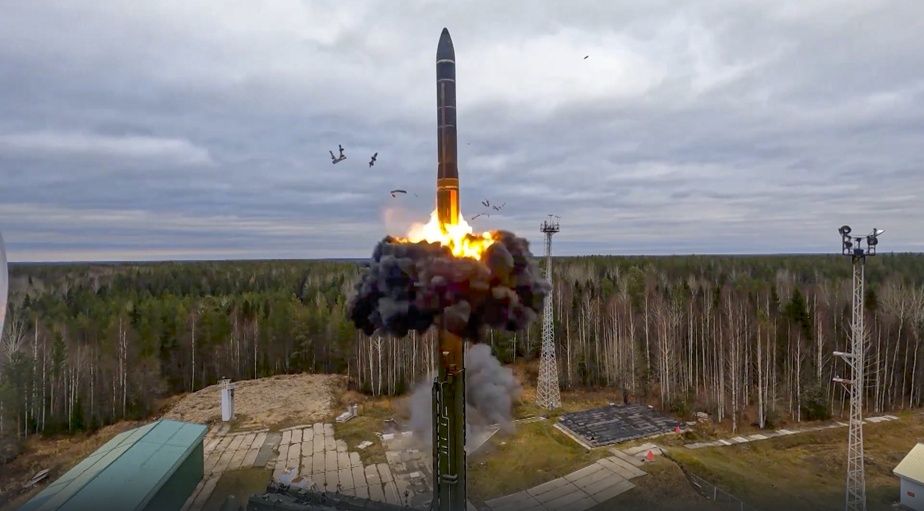
PHOTO BY THE RUSSIAN MINISTRY OF DEFENSE, ASSOCIATED PRESS ARCHIVES
In this photo taken from a video released by the press service of the Russian Defense Ministry on October 26, 2022, a YARS intercontinental ballistic missile is tested as part of Russia’s nuclear exercises from a launch site in Plesetsk, in northwest Russia.
This change “de facto excludes the possibility of defeating the Russian armed forces on the battlefield,” stressed the head of Russian foreign intelligence, Sergei Naryshkin, on Wednesday, suggesting that Russia would resort to the atomic bomb rather than risk defeat. in a conventional war.
Washington, Paris, London and the European Union denounced an “irresponsible” attitude, while Kyiv urged its allies “not to give in to fear”.
Chinese President Xi Jinping, on a state visit to Brazil, called for “bringing together more voices committed to peace to pave the way for a political solution” to the conflict, after meeting his Brazilian counterpart Luiz Inacio Lula da Silva, the official Xinhua news agency reported.
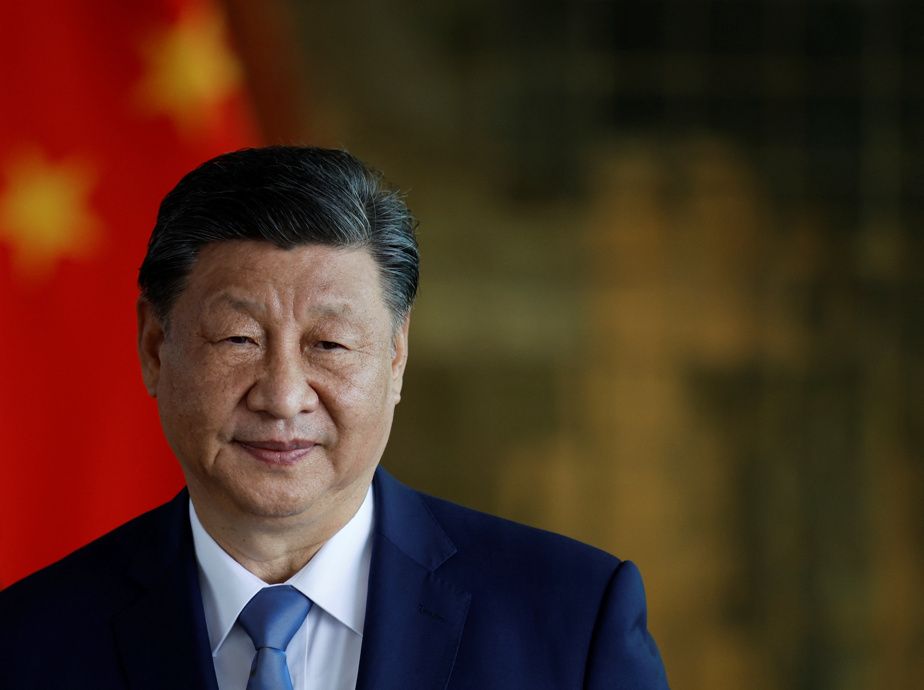
PHOTO ADRIANO MACHADO, ARCHIVES REUTERS
Chinese President Xi Jinping
Moscow’s crucial partner, China, is accused of participating in the Russian military effort.
At the same time, Brazil, Chile, Colombia and Mexico urged “all parties involved to respect their international commitments and prioritize dialogue and the search for peace”, as well as to “avoid actions that result in a race to armament”, according to a joint press release.
Closure of embassies
Ukraine was annoyed on Wednesday by the temporary closure of Western embassies which feared Russian bombings, stressing that the threat had been “daily” since the start of the invasion in February 2022.
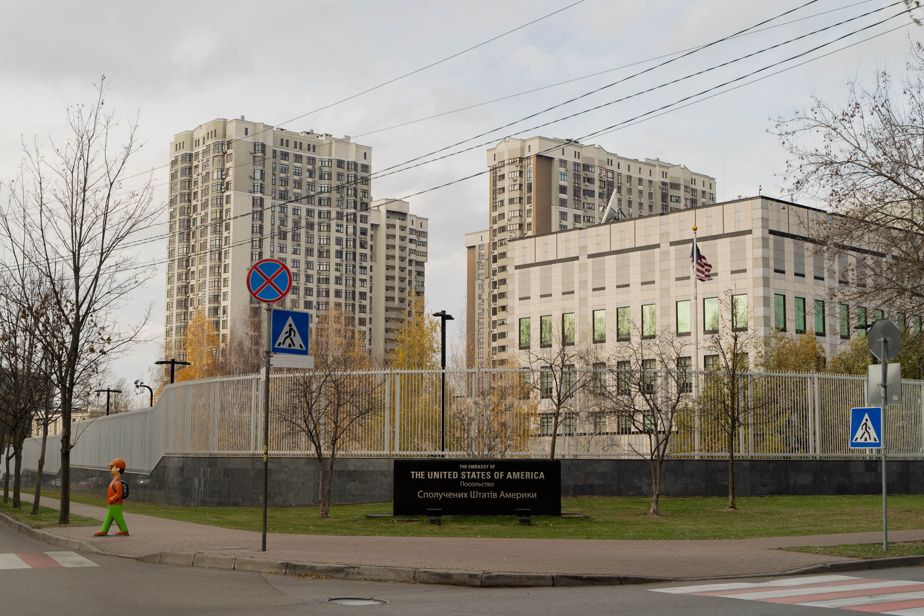
PHOTO TANYA DZAFAROWA, AGENCE FRANCE-PRESSE
The American Embassy in Kyiv
At least five Western embassies, those of the United States, Spain, Italy, Hungary and Greece, have announced that they will temporarily close for the day on Wednesday.
This follows a warning from the US embassy, which warned of a “possible significant air attack” on Ukraine.
Ukrainian diplomacy denied that the risk was higher on Wednesday, adding that the threat of strikes was “a daily reality for Ukrainians”.
For Volodymyr Zelensky, the spread of this type of information only “helps Russia”. He too said the threat remains the same: Russia is “just as crazy” today as it was on the first day of the invasion.
Drone and missile strikes, sometimes massive, have been almost daily in Kyiv for weeks and have been very regular since the start of the conflict almost three years ago.
Anti-aircraft alerts sounded several times in the capital during the night and day and drones were shot down. No casualties have been recorded.
A Russian strike against a village in eastern Ukraine, near Kramatorsk, on the other hand, killed an 11-year-old boy on Wednesday and injured his sister and grandfather, according to the regional prosecutor’s office.

